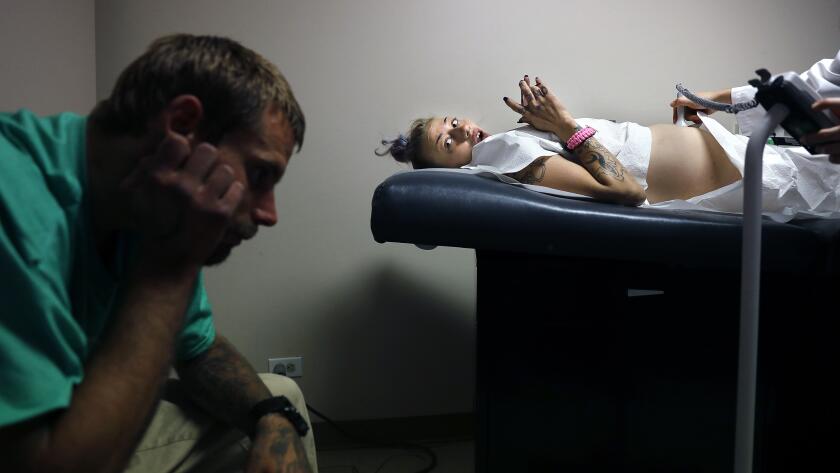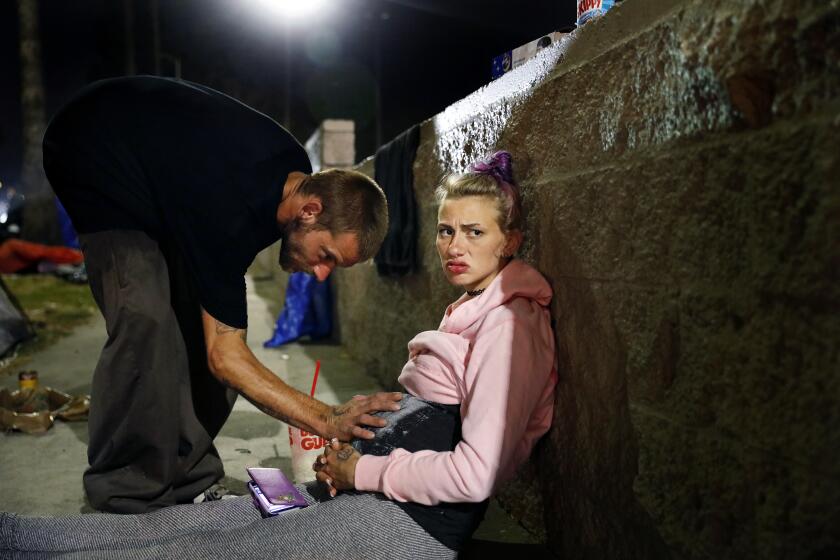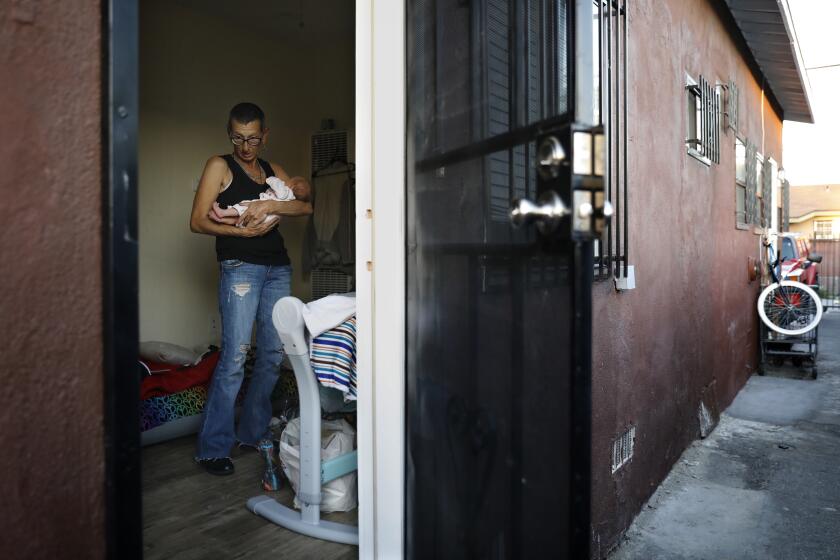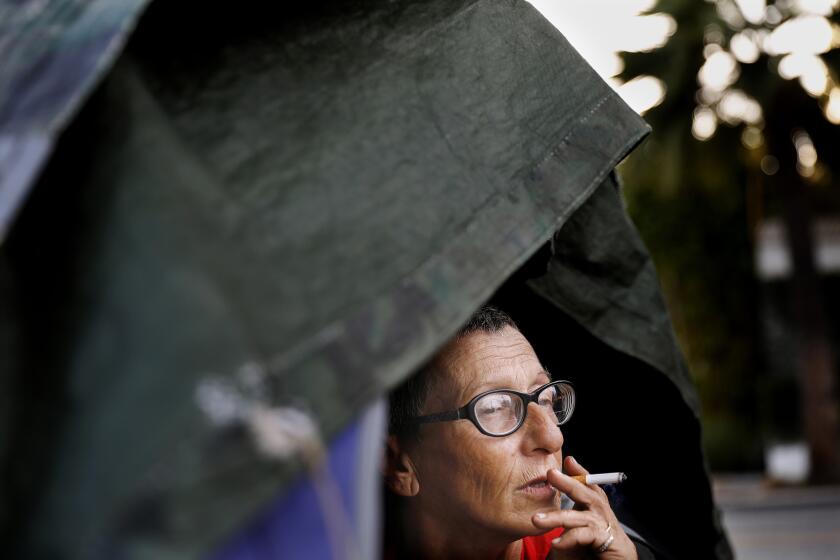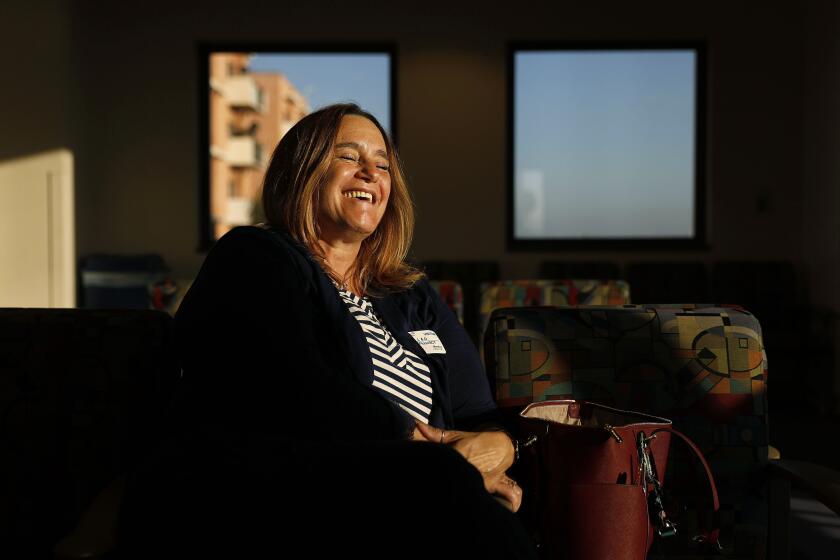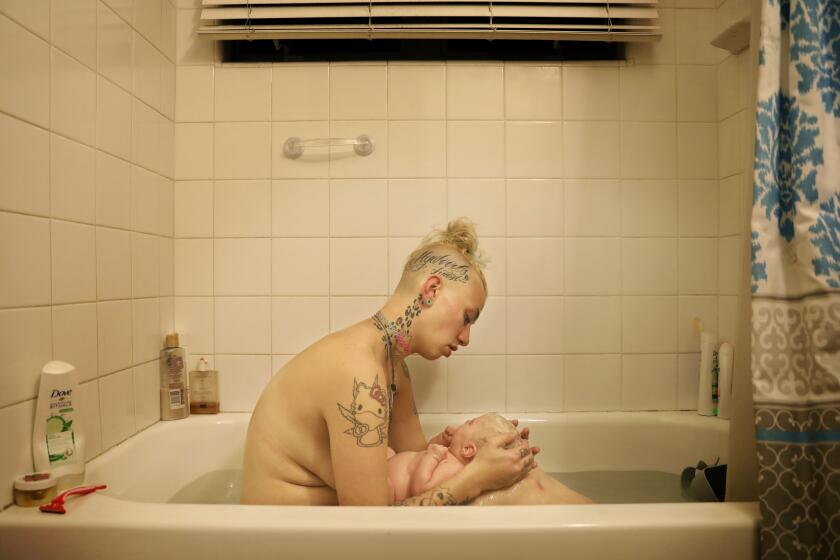- Share via
Los Angeles Times videographer Claire Hannah Collins had proposed a story about something our organization had seldom touched on in decades of covering L.A. homelessness: pregnant women living on the streets. She and another videographer spent months reporting and connecting with different agencies, and interviewed several women who had experienced homelessness while pregnant.
Then Mckenzie Trahan’s mother called me — I was on The Times’ Metro homelessness coverage team — frantic that her daughter, then 6½ months pregnant, had been stripped of her belongings in a law enforcement sweep.
Collins, photographer Christina House and I slipped through a hole in the fence above the 101 Freeway in Hollywood and into a world of young homeless people, including many who had grown up in foster care and the juvenile detention systems. Mckenzie’s mother, Cynthia “Mama Cat” Trahan, arrived to help with the pregnancy and became part of the story.
We would soon learn that each of us had a connection with Cat and Mckenzie: Claire and Mckenzie were the same age; Christina and Mckenzie were pregnant at the same time; and I was roughly of Cat’s generation.
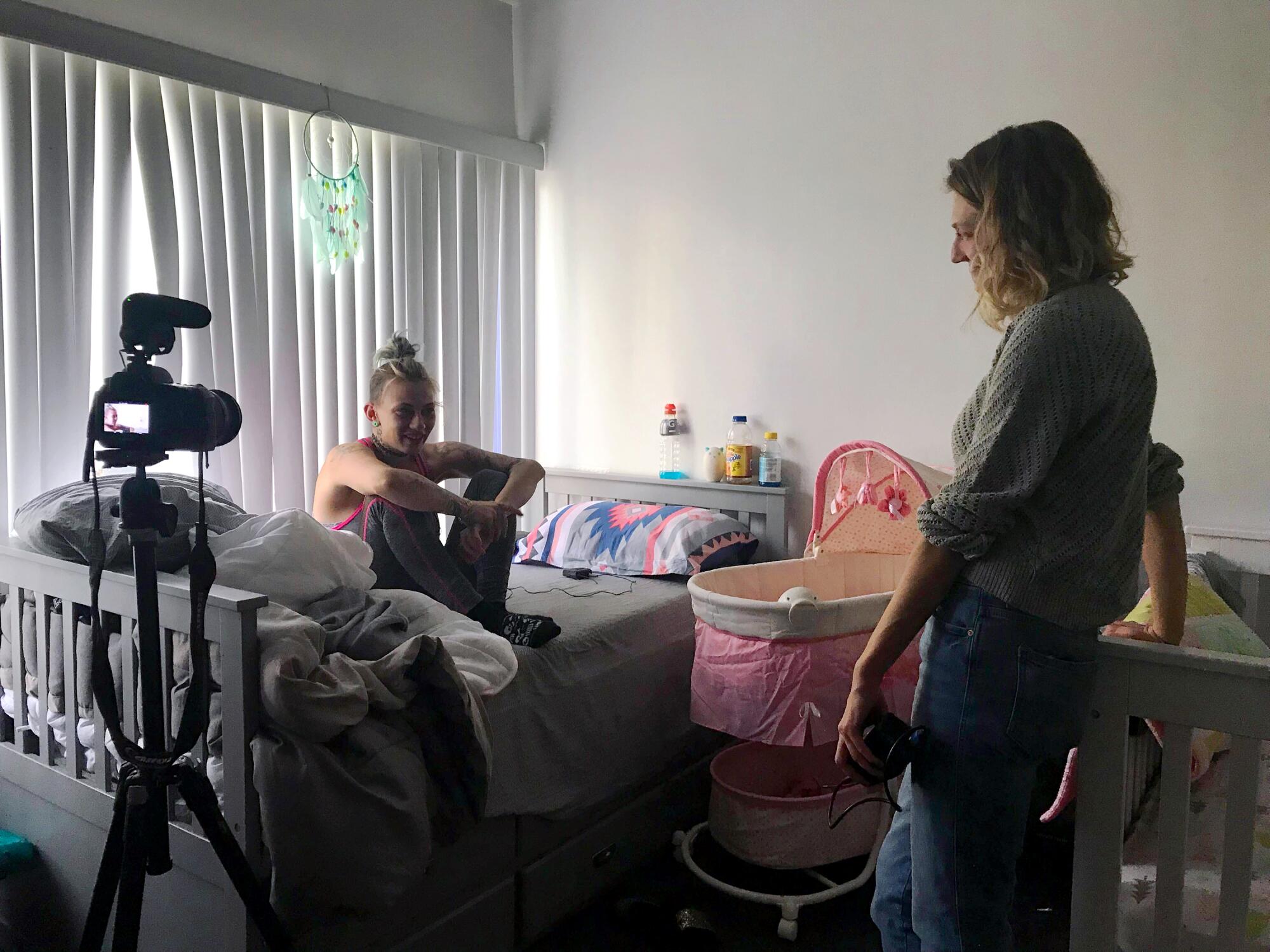
Cat and Mckenzie put their trust in us, and we tried to respect their autonomy and control over their narratives while witnessing and probing some of the toughest moments in their lives. Even when things were especially rough, they told us they supported the project: Mckenzie said she wants her story told in all its rawness, and Cat said she wants to no longer be invisible.
We hung out at the Hollywood tents and accompanied Mckenzie by bus or train to her first ultrasound appointment, her rejection by a leading Christian homeless organization and her entry into a housing program for homeless mothers. We sat in the hospital waiting room for chimes to signal her daughter’s birth, and observed the joy and happy tears as father Eddie, Cat and Mckenzie’s homeless friends gathered to celebrate.
In an encampment above the Hollywood Freeway, nothing about Mckenzie Trahan’s future is certain.
PATH, the housing program operator, graciously bent its no-visitor rule to allow us to watch Mckenzie play with and bathe her daughter, Ann, in their tiny apartment, and we spent time with the child-care center teachers observing the baby’s routine and drop-off and pickup by Mckenzie. We were along for parts of Mckenzie’s job search and work training program, for fun and sweet moments with Ann and days of uncertainty, frustration and extreme loneliness.
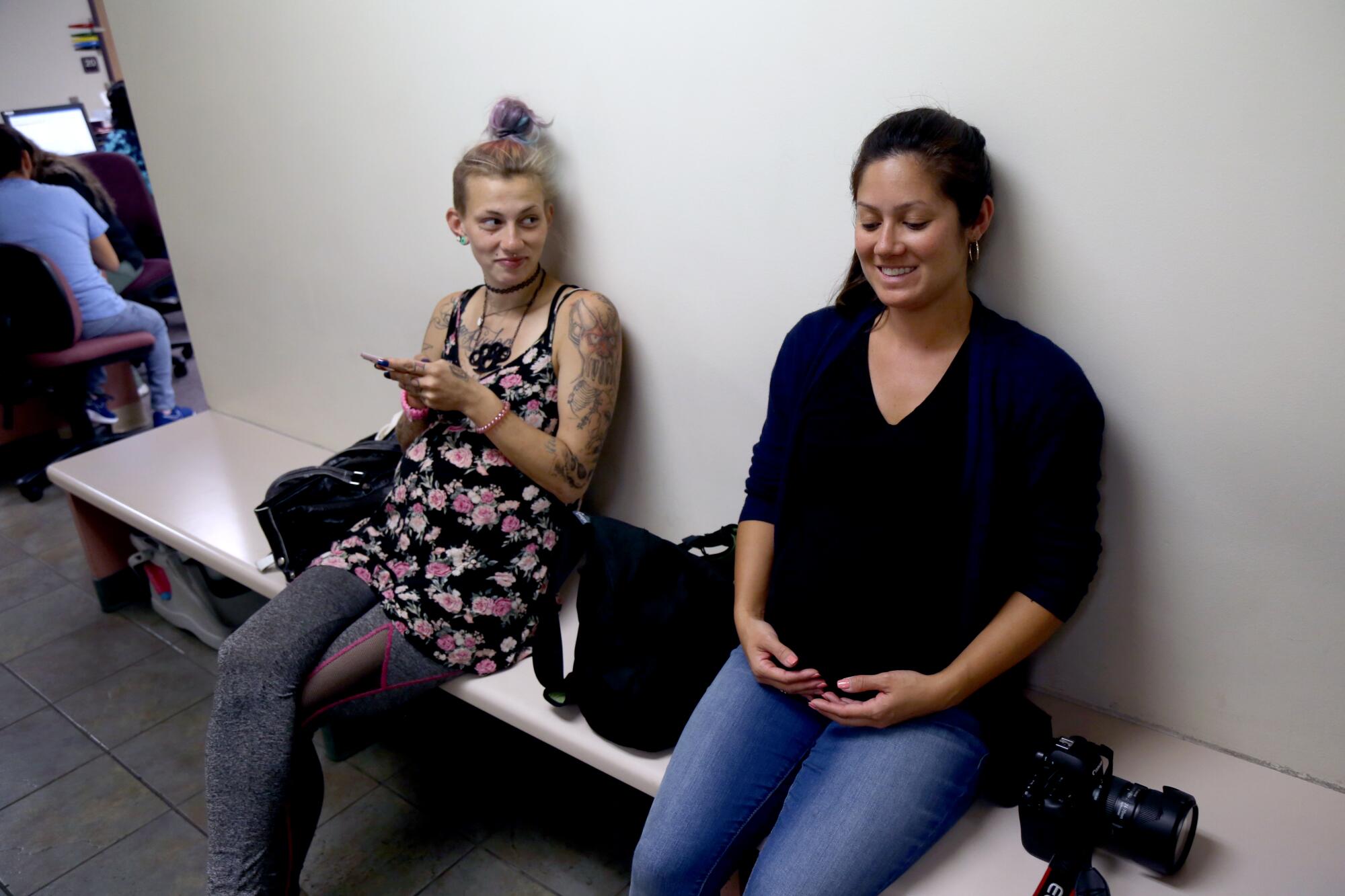
To understand Cat’s nomadic lifestyle, we woke up in the Alabama Hills west of Lone Pine in the eastern Sierra and watched her fix coffee at sunrise. Claire hitchhiked with Cat into Bishop, where her stories of networking on the road came to life.
Through snatches of conversation with and between Mckenzie and Cat, we painstakingly pieced together poverty and trauma in the Trahan family dating back three generations to Louisiana Cajun Country. We set up strategic video interviews to piece story fragments together and get their perspectives, and verified what we could, through court records and other government documents, contemporaneous newspaper stories and photos. Social media accounts going back in time were helpful. Patience was essential.
We had recognized that Mckenzie was struggling. But I was shocked at the speed with which social workers and the dependency court removed Ann to foster care, and deeply saddened. For those who have not been part of the first year in a baby’s life, her relationship with her mother, and in a small way even with us, was very real.
Cat has struggled with poverty, and suffered mental and physical health issues, domestic violence and the loss of Mckenzie and a son to foster care.
We were denied access to the dependency court hearings but watched from the hallway when Mckenzie read the child protection investigator’s harsh assessment and fell apart.
After Ann’s removal, Mckenzie was in extreme crisis, moving around and out of touch. We showed up cold at several homeless encampments where we thought she might be staying; I heard there were more guns than ever on the streets, which did not make me happy.
At Mckenzie’s tent near the top of a steep and slippery embankment with a treacherous drop to the Hollywood Freeway below, Christina and I almost went over the edge, but another homeless person grabbed me.
Mckenzie’s friends spoke of the stigma of homelessness. Some were surprised and happy The Times had taken an interest in homeless people’s lives.
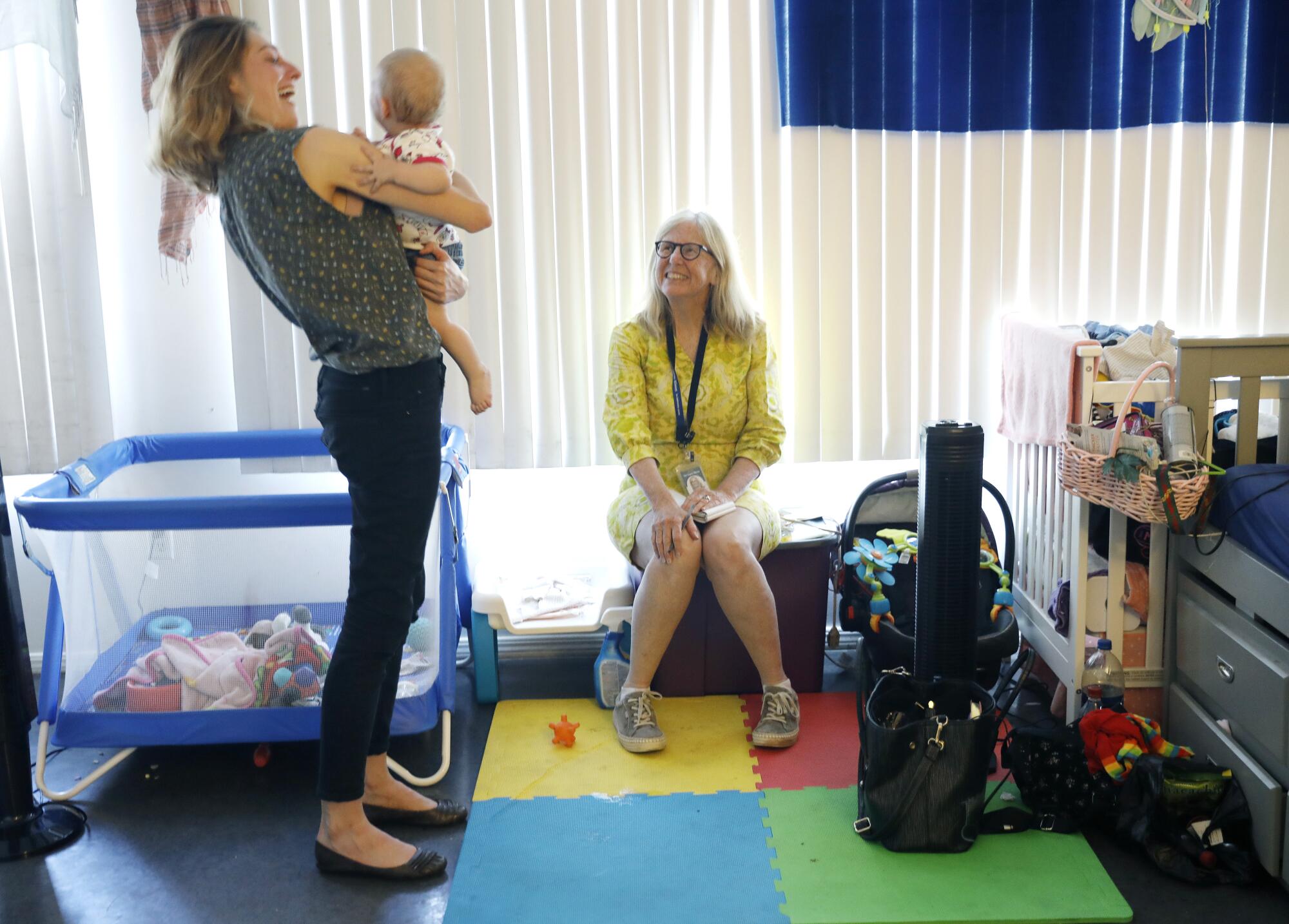
The pandemic interrupted our project, but Mckenzie invited us to move-in day at her new apartment and we got together periodically, masked and socially distanced, including in the days after Eddie’s death. Mckenzie was devastated, but she and her friends are surrounded by death; passings are a recurrent topic in conversation and on their social media pages.
We spent a few days in Spokane, Wash., with Mckenzie’s case manager, Leslie Kerr, and observed her reconciliation with, and caretaking for, her ill mother, after Kerr’s recovery from three decades of addiction.
Our objective was to tell the story of women at the cusp of our shifting response to some of our gravest social problems: intergenerational poverty, homelessness, child neglect, mental health, foster care and addiction.
The success of our efforts to end the scourge of homelessness lies as much or more with the people inside the tents as in the City Council chambers or academic studies. I hope we have brought these women to life in all their vibrancy and complexity.
Mckenzie Trahan — or as her scalp tattoo put it, one of “Hollywood’s Finest” — was born into a family that for three generations had been buffeted by domestic violence, mental illness and homelessness, and caught up in child welfare cases. Times staffers Gale Holland, Christina House and Claire Hannah Collins met Mckenzie in 2018, and since then have documented the stories of Mckenzie and two other women — mother, Cat Trahan, and case manager, Leslie Kerr. Follow along on their journey.

More to Read
Sign up for Essential California
The most important California stories and recommendations in your inbox every morning.
You may occasionally receive promotional content from the Los Angeles Times.
